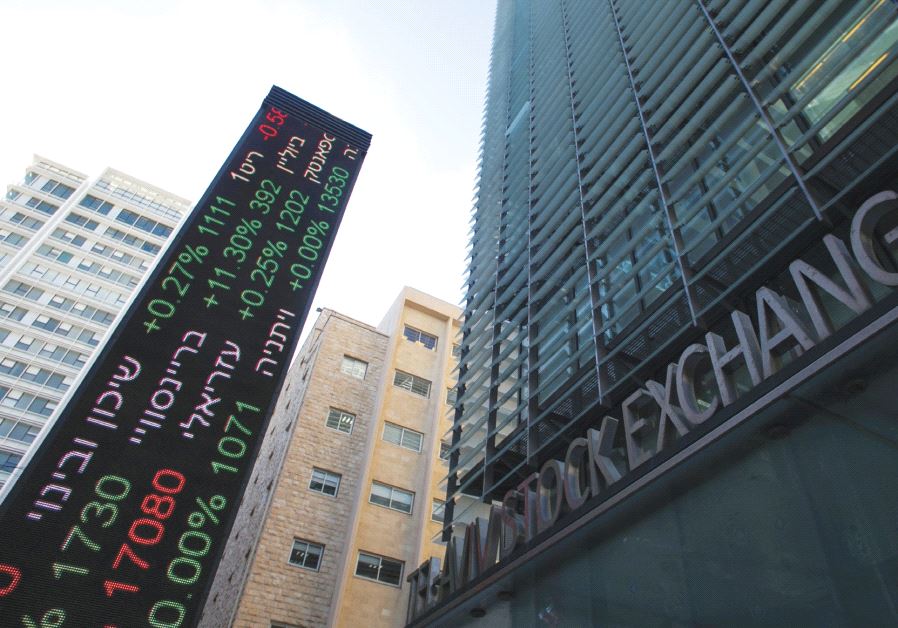Overpriced Israeli corporate bonds may come down amid stock market unrest
“Volatility on the US stock exchange brings us volatility here, and it could make a financial impact in the Israeli market through corporate bonds.”
 An electronic board displaying market data is seen at the entrance to the Tel Aviv Stock ExchangeUpdated:
An electronic board displaying market data is seen at the entrance to the Tel Aviv Stock ExchangeUpdated: